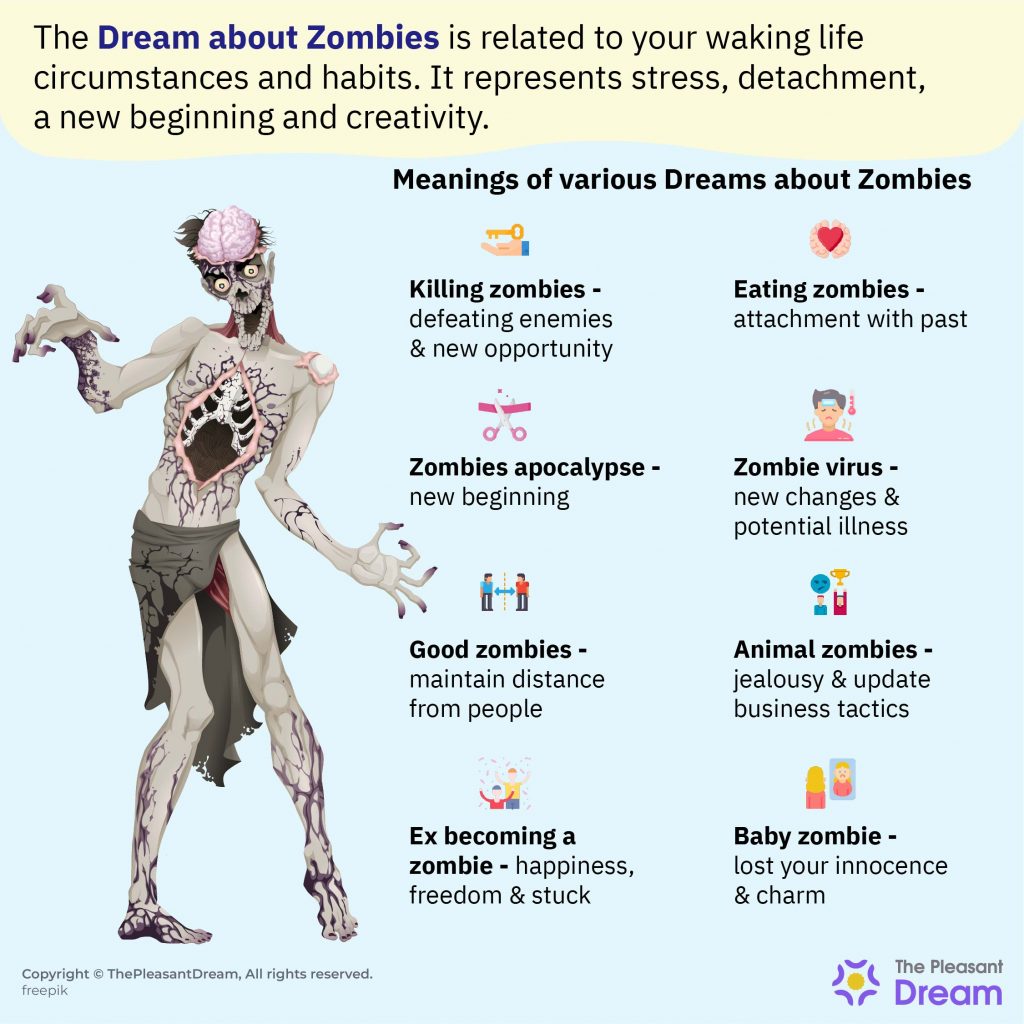Uncover the Dark Meanings Behind Your Zombie-Chased Dreams – A Mind-Bending Journey of Dream Interpretation
Picture this: you’re running, heart pounding, as an army of terrifying zombies follows close behind. Even though it’s just a dream, you wake up in a cold sweat, wondering what it could all mean. And that’s where I come in.
Hi there, dreamers. Welcome back to my blog, The Dream Interpreter. Today we embark on a journey through the realm of dreams as we uncover the hidden meaning of being chased by zombies.
Now, I know what you’re thinking – “What good can come out of dreaming about being chased by zombies?” Well, stay with me and find out why this dream can prove to be invaluable in navigating your waking life.
In this article, we will explore the symbolism of your blood-racing dream. Understanding fear and anxiety and unlocking personal power and resilience, interpreting this zombie chase dream provides insight into your subconscious. It is a confrontational yet empowering experience that fosters personal growth and self-discovery.
So, if you’re ready to face your fears, outrun hordes of zombies, and discover the secrets of this heart-stopping dream, let’s dive in together. Brace yourself for an emotional rollercoaster as I aid you through the dark alleys of your subconscious mind.
Overview of dreams as a window into the subconscious
Dreams have long been believed to provide insight into our subconscious mind. They are seen as a glimpse into our deepest thoughts, fears, and desires. Dream interpretation has been practiced for centuries to uncover hidden meanings and messages from our unconscious.
The purpose and meaning of dreams are largely unknown, but psychologists and researchers agree that they offer valuable insights into our emotional and psychological state. Dreams mirror our inner thoughts and feelings, helping us explore and understand our subconscious mind.
One interpretation of dreams is that they serve as a release valve for our subconscious thoughts and emotions. During sleep, our minds explore and process unresolved conflicts, desires, and fears. This can manifest through vivid dreams, nightmares, or recurring themes. By analyzing these symbols and patterns, we can gain a deeper understanding of ourselves and our concerns.
Another view is that dreams act as a problem-solving mechanism. Our subconscious mind processes information while we sleep, allowing us to come up with innovative solutions to challenges in waking life. Dreams provide a safe space to explore scenarios and possibilities, offering creative insights that we may not have considered consciously.
Dreams offer unique and mysterious insights into our subconscious mind. By paying attention to symbolism, patterns, and emotions in dreams, we can gain a deeper understanding of ourselves and our inner world. Whether as a release valve or a problem-solving tool, exploring and interpreting dreams provide valuable insights to help navigate the complexities of our psyche.
Dreams of being chased and symbolic interpretation
Dreams of being chased are common and can evoke fear and anxiety. They provide insight into our subconscious mind and symbolize avoidance or escape from situations or emotions in our waking life. Being chased by a zombie could represent fear of the unknown or feeling overwhelmed.
To further analyze the symbolic interpretation, we can refer to a dream interpretation table:



